A Brief History of US Student Politics
‘Hey, hey LBJ, how many kids did you kill today?’
These chants outside of the White House haunted Lyndon B. Johnson throughout his presidency. He would sit in the Oval Office with his head in his hands as the chants wafted through the walls. When his son-in-law Charles Robb sent in a tape from Vietnam, Johnson buckled against the table and looked as though he was in tears. For the loud Southern Jackson, who took great pleasure in towering over and intimidating others, this seemed like quite a big deal.
This is not about Johnson, however. This is about the students who protested him and the Vietnam War. This is about the students who protest now and any time.
An American Education
Harvard University was founded in 1636 and is classed by many as the oldest institute of higher education in the United States. Throughout history, the Ivy League colleges (Harvard, Yale, University of Pennsylvania, Princeton, Columbia, Brown, Dartmouth and Cornell) have been considered the most elite, though others have made quite the showing. Between them, the Ivy League colleges have educated fifteen US presidents. They’ve also educated many Supreme Court Justices, Governors and members of Congress.
Throughout early American history, the Ivy League and other elite colleges were almost exclusively for white, wealthy men. Colleges for women did exist, such as the female equivalent of the Ivies, the Seven Sisters, though they came far later. Colleges for African-Americans also came later, such as Howard and Tuskegee.
Cornell began to accept women in 1870, but it took until 1983 for all of them to admit women, with Columbia being the last.
Minority men were able to attend earlier and more frequently, with Yale being the last to accept black students in 1964.
Despite more diversity in terms of the student body, Ivy League colleges see students of the wealthy 1% overrepresented. One in six Ivy students have parents from the top 1%, and they are 34% more likely to be accepted than students with the same scores but from less wealthy backgrounds. The children of these parents are also more than twice as likely to attend elite universities- the Ivies, Stanford, MIT, Duke and Chicago.
The Times They Are A-Changin’
Whilst protests and activism were not unknown prior, the 1960s saw an explosion in it.
The decade was one of great social change, perhaps the greatest since the 1860s. Firstly, there was more of a focus on youth. TV, radio and movies began to cater to teenagers. Bands like the wholesome Beach Boys and sassy Beatles saw teenage screaming along. As incomes expanded, college enrollment doubled between 1945 and 1960, doubling once again by 1970.
There was also less social and cultural hegemony than before, something that Richard Nixon and his Silent Majority sought to exploit. The Civil Rights movement was at an apex as students sat at segregated café counters and took integrated buses to register African-American voters in the Deep South. Second-wave feminism saw women demand access to birth control, abortion and equality in the workplace. As students moved away from their generally conservative homes, many became embroiled in a more progressive political atmosphere.
Perhaps most impactful in terms of lives was the Vietnam War. Action in the Asian nation had significantly escalated, particularly after the Gulf of Tonkin incident in 1964.
Students in particular were opposed to the draft. College students could receive deferments, but they were in the target conscription demographic of being young and healthy and unmarried, though the marriage deferment ended in summer 1965. One of the most notable forms of protests saw students burning their draft cards.
They were also active in the protest movement as a whole. College campuses became hotbeds of political activity. Students also joined protests and demonstrations.
There were varied reasons as to why students in particular were opposed to the war. Some echoed the popular sentiment of many that it was war thousands of miles away that did not have anything to do with America. Others believed that American soldiers were killing innocent civilians. Some thought that the money would be better spent elsewhere or that war in general was wrong.
One college that became a centre of counterculture politics was UC Berkeley. The California university became a hub of activism and protests regarding Civil Rights, free speech and Vietnam.
Most of the decade saw passionate but peaceful protests in the area, but this changed. In April 1969, students at Berkeley set up an informal encampment in People’s Park, scuppering a plan to turn it into a public space. On the 15th May 1969, police arrived to turf the squatters out. This, combined with a nearby college protest, saw around 6,000 people turn out at the park. The police eventually opened fire, killing San Jose resident James Rector as he watched from the roof. Many others were injured; one man was blinded. California Governor Ronald Reagan called in the California National Guard.
There had been a notable protest at New York’s Columbia University a year before. Black student protestors had asked white protestors to protest separately, which they did, segregating it on racial lines. Some of the students occupied the administrative Hamilton Hall, holding Acting Dean Henry S. Coleman hostage.
In another protest that year, students at Morehouse in Atlanta held the board of trustees. One of those students was a young Samuel L. Jackson.
Sixties Assassinations
Adding to the students’ cynicism were the assassinations of four famous men, all of whom were generally admired by students.
The first was John F. Kennedy in November 1963. Kennedy had been a proponent of college education and had been a point of fascination for young people, mainly due to his relative youth compared to other politicians.
The second was Malcolm X, the firebrand minister for the Nation of Islam and advocate of civil rights. He was slain in February 1965.
The third was Martin Luther King Jr, the well-known minister who advocated for civil rights via peaceful means. He was killed in April 1968.
The fourth and final one was Robert Kennedy in June 1968. He had entered the Democratic race for president as an anti-war and liberal alternative to unpopular incumbent Lyndon B. Johnson.
Death At Kent State
One of the most tragic events of the student protest movement came in May 1970.
The Sixties was over and new president Richard Nixon had promised law and order. Meanwhile, America was expanding military operations in Vietnam by entering neighbouring Cambodia. This caused immediate controversy in the anti-war movement. Several hundred students at Kent State in Ohio were protesting this. Residents and police officers had been concerned about potential repercussions in the community, and the Ohio National Guard was called.
The National Guard attempted to disperse the crowd through tear gas and other means, but this failed. Protestors began to throw rocks and other projectiles at them before being herded away. Near a hill, some of the officers started to open fire. Four students- two men and two women- were killed. Nine others were wounded, one of whom was permanently paralysed.
Images of the event, including the famous picture of a horrified teenager standing over one of the bodies, caused even more riots and protests across the nation. 100,000 people marched on Washington a few days later, leading to Richard Nixon famously talking to protestors in the middle of the night at the Lincoln Memorial.
Post-Sixties
Whilst the chaos of the 1960s gave way to a relatively more peaceful 20th century, activism and protests still remained. College Democrats and College Republicans have both been popular hubs for the partisan-minded students. Politicians regularly attend speeches and rallies, especially when they’re supported by the students.
As a rule, colleges tend to be on the left of the spectrum, in both faculty and students. Exceptions to this tend to be religious institutions like Bob Jones and Liberty University.
Issues that have arisen include the Iraq War, climate change, school shootings, race, gender, sexual assault and rape and military engagement in general.
The Current Protests
On the 7th October 2023, Israel was surprised by an attack by Hamas. People were murdered, missiles were fired and civilians taken hostage. In response, Israel had gone all out on Hamas. As a result, there have been numerous deaths and injuries in Palestine. Many people have been made homeless or have needed to evacuate from their homes. Some have flooded into neighbouring Egypt. Neither Palestine or Israel are safe.
Sympathy for the deaths of innocents have been widespread, but there is a huge difference in opinion regarding Israel. Protests have happened in major cities across the world, with the pro-Palestine side occupying most of that space. London for example has seen weekly protests since October.
The issue has become a massive one in America. Historically, the American government has been a strong supporter of Israel. Joe Biden has given assistance to Israel, but seems to want incumbent Israeli PM Benjamin Netanyahu out. Internally, there is debate amongst the legislative branch. Pro-Palestine and anti-interventionist politicians have come together to stop aid to Israel. Others wish to help it more.
It’s also been dynamite for college campuses. Coast to coast, north to south, university students have been protesting non-stop since October. The Ivy League colleges have been the centre of the protests, but other elite and notable colleges such as Stanford, Berkeley, Northeastern, NYU, Ohio State, and Emerson have seen student activism.
Students have been calling for an immediate ceasefire in the area. Regarding their own colleges, they ask for the institutions to break all ties to Israel, especially regarding financial gifts.
The protests themselves have been controversial. The shouting of ‘from the river to the sea’ is seen as a call to action against Jews, as well as the calling of a global intifada. Flickers of anti-semitism have allegedly been seen in these protests, despite the bulk of participants proclaiming they oppose Zionism, not Jews. Some Jewish students have participated in the protests, whilst others feel unsafe. Classes have been called off and students have been forced to study online.
Encampments have been put up on several campuses. Some have been cleared by police whilst others remain. These encampments are made up of tents, donated food and other communal activities, all of which are subject to rules. Whilst the protests remain mainly about Israel and Palestine, they tend to bend towards anti-capitalism and progressive ideology.
New York’s Columbia University has been the establishment most in the news. On the 17th April, a number of Columbia students started an encampment. Whilst the encampment was torn down by police the next day, it was rebuilt and protests continue. Students report difficulty getting to class. Arrests and suspensions have also been made.
Student Kyhmani James became the subject of media attention following comments regarding the murder of Zionists. He filmed a video of himself talking to the administration in an attempt to get his views across. Unfortunately for Mr. James, he has been kicked out of Columbia.
The Response
America’s 1st Amendment is very strict on the freedom of speech and assembly. That being said, law enforcement and university officials are more than a little tired of it. Students have been arrested, suspended and even expelled. Three college presidents have sat before Congress- Mary Magill of UPenn, Sally Kornbluth of MIT and Claudia Gay of Harvard. Magill resigned in December 2023, and Gay followed in January 2024 after a plagiarism scandal.
Some presidents have been tough. The University of Florida sent out a very clear letter to protestors telling them which behaviour was appropriate and what would get them kicked out. Florida State turned on the sprinklers. Northeastern University got the police to clear the encampment, saying that the use of ‘Kill the Jews’ crossed the line. Florida Governor Ron DeSantis promised to expel any protestors who joined mobs. Even Columbia, the home of the most infamous protests, allowed the police in to tear down the encampment.
It doesn’t look like this is going to go away anytime soon. What some call a win for free speech is what others call going ‘too far’. As parents look away from the Ivy League to less elite but still reputable universities, one wonders if it’s a case of rich kids with too much time on their hands and no problems of their own. Is it that or a genuine example of solidarity with Palestine? Whatever the case, America’s campuses remain on metaphorical fire.

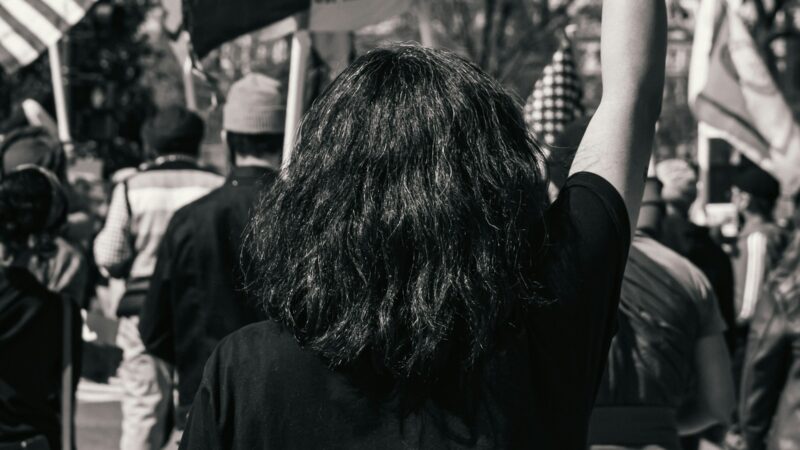
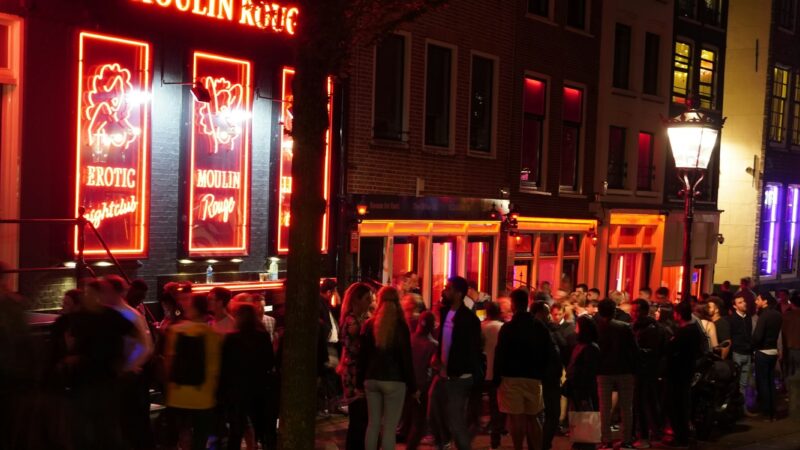
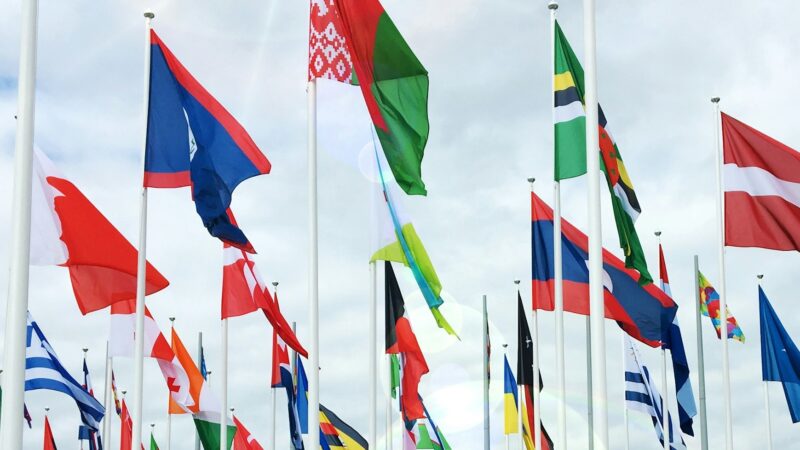
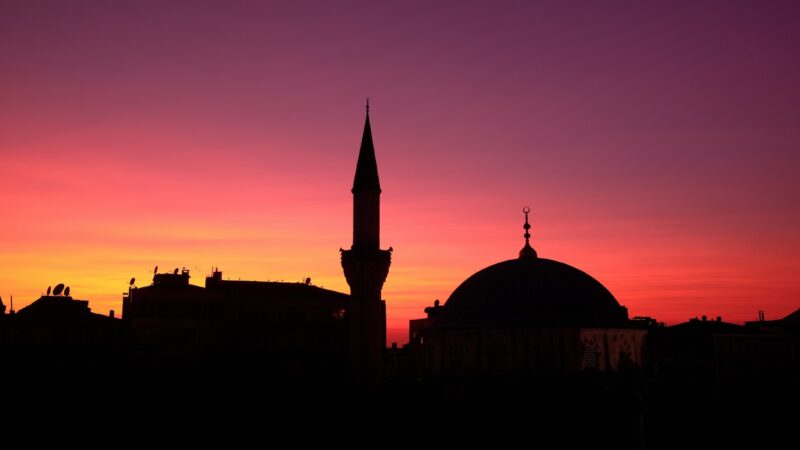

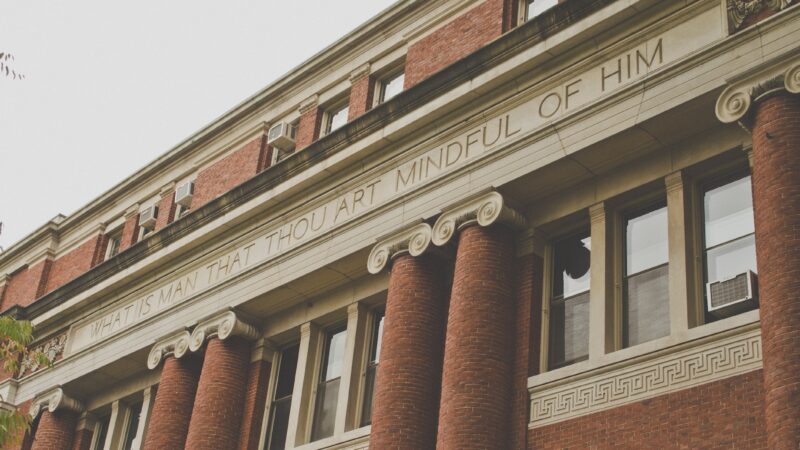

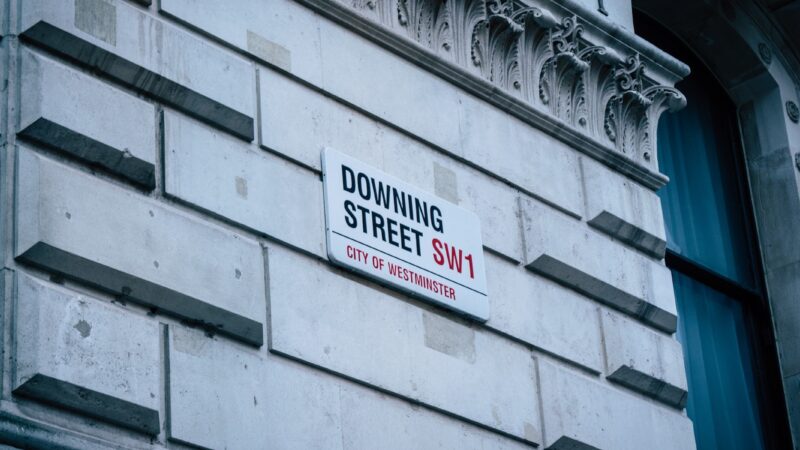
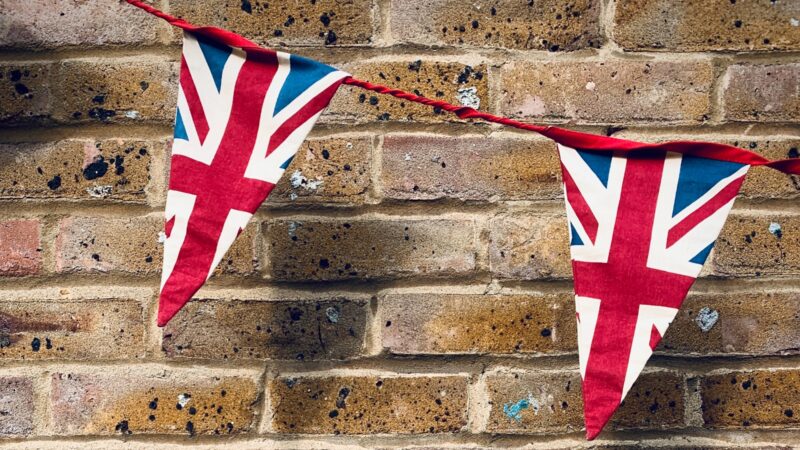
Relatability and Envy
At the Sky News Q&A, both Rishi Sunak and Keir Starmer were asked to reveal something about themselves that would show the real them. Starmer was also accused of being a robot by a voter. Sunak waffled on about his love of sugary food. Starmer basically went on autopilot.
Did it work? No. Both just looked stupid.
It was an unfortunate question really. The problem is that politicians have become obsessed with being relatable. They’ll shed their political image like a snake in order to win a few votes. It can be talking about TV shows, playing sports or just mentioning something from popular culture. They have to look like they’re one of us.
It also ties in with a politics of envy. A number of politicians who are wealthy or come from good families play down their backgrounds or hide from it. The idea that someone from a privileged background can reach the level that they do without envy or scorn is somehow unrealistic in today’s society.
It’s All About the PR
For decades, politics has been a PR game. Who would you have a drink with? Who seems nicest? Who has the best family values? Who is funniest? Policies are put aside in favour of a good photo op and a one-liner that does the rounds on social media.
We’ve seen that in this election, particularly from Sir Ed Davey. He’s had fun going paddle boarding and riding roller coasters. There is no substancing in his messaging, despite the fact that he could make gains from the two major parties collapsing. Whilst the Lib Dems do have a manifesto and probably actual policies, it’s overshadowed by Davey’s antics.
It’s not new either. Even Margaret Thatcher was not immune to it. Aides had her hold a calf for photographers, the poor thing died not long later. David Cameron hugged huskies in snow. Neil Kinnock walked down the beach with his wife. Tony Blair met with Noel Gallagher. Everyone has a gimmick.
The problem is that it is clearly not authentic. Margaret Thatcher wasn’t an animal cuddler. David Cameron isn’t a fan of huskies. Neil Kinnock probably doesn’t do long walks on the beach. Tony Blair doesn’t listen to Oasis. Voters don’t want to see their politicians being hip and cool. They want to see them tackling the issues that we elect them to do.
We all know that the Prime Minister has a job to do. They oversee wars, economic crises, terrorist attacks and natural disasters among other things. The real test of a PM is their response to said issues. Nobody cares about what their favourite book or TV show is when such issues arise. Interviewers often like to throw in a soft question, just like a backbench Member of Parliament mentions a new animal sanctuary in their constituency. It just doesn’t fit.
It also assumes that every politician is one of us. Who cares if they don’t watch much TV? Who cares if they speak Latin or Greek? Boris Johnson, a man with a great love of the classics, would often recite Ancient Greek, but he also showed an affability and relaxed nature that hid this. Meanwhile, David Cameron struggled to look authentic when he wanted to ‘hug a hoodie.’ One lasted six years in office, the other three.
Rich or Poor?
This brings me nicely to my next point. Our nation, or at least the media, seems to not particularly like politicians being open about their privilege. If a politician came from a wealthy family or went to a private school, they are expected to flex their working class credentials.
Take Rishi Sunak and Keir Starmer. Sunak is the son-in-law of a billionaire and wears very expensive items, and is thus wealthy. When asked about this, he points to the fact that his father was a GP and his mother a pharmacist, two respectable middle class professions. Starmer waxes lyrical about the fact that his father was a toolmaker (cue laughter) and his mother a nurse. What he fails to mention is that his father apparently owned the factory and he attended a private school, though through a bursary.
David Cameron suffered from a similar image problem, as did Boris Johnson in some quarters. Meanwhile, Margaret Thatcher was proud of being a grocer’s daughter and John Major left school at sixteen. Clement Attlee came from a comfortable background, attending a private school and Oxford. James Callaghan came from a working class family and did not attend university. Each of them have varied reputations as politicians.
Contrast this with that of America. Whilst Americans love the idea of the American Dream and pulling yourself up by the bootstraps, they also don’t care as much about class, whether upper or lower. Donald Trump has not once hid that he’s from a rich family, and yet he does not see shame from voters over this.
I frankly do not care if a politician came from a northern council estate like Angela Rayner or was the grandson of a duke like Winston Churchill. I don’t care if they went to a comprehensive or Eton, just as I don’t begrudge a parent for wanting to send their child to a grammar or private school. If they can afford private healthcare, then good for them.
If a politician from a comfortable background is asked about this, they should not downplay it. Instead, they should simply say that their parents worked hard and that they want all people to have the same opportunity.
That is not to say that I think the country would be a perfect place if every MP went to Eton and Oxford. I don’t think it would be perfect if every MP went to a normal school and didn’t go to university. We’ve had good politicians from all backgrounds, and we’ve had bad politicians from all backgrounds.
It does not serve us well to be envious of the rich, or assume that all working class people are good ol’ folk. We should not be desperate for a politician to be a big fan of Game of Thrones or like the same sweets as we do. Politicians should not pretend to be something they are not. I’m not voting for a person’s school or their favourite beverage. I’m voting for who I think has the best ideas.
Which, to be frank, seems to be none of them. Hey, at least I know that Rishi Sunak loves Haribo.
Photo Credit.